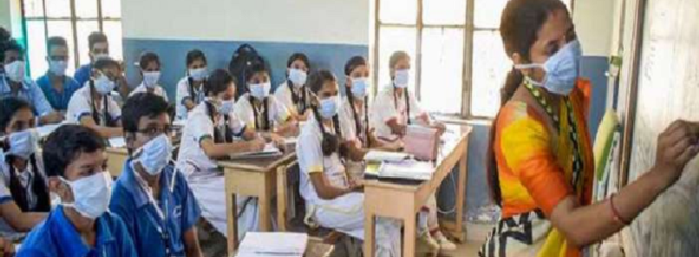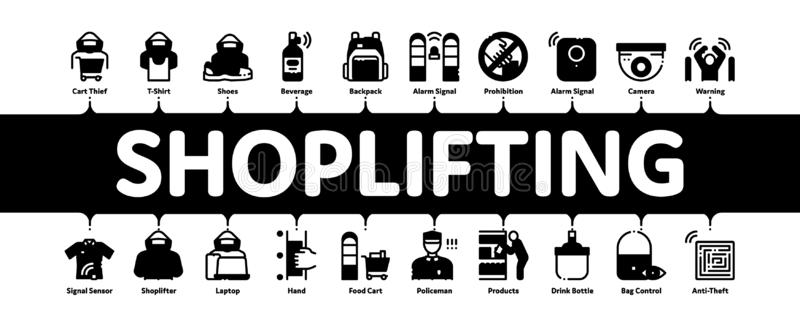Domestic violence is assaultive and coercive behaviors, including physical, sexual and psychological. A domestic violence assessment is used to find help for those that suffer from some form of domestic violence. Domestic violence assessments are specialized evaluations of domestic violence issues and are conducted using specific evaluation protocols. There are a number of questions on the evaluation which will help the assessor to determine whether someone is the subject of domestic abuse. Domestic violence risk assessments offer an evidence-informed approach to evaluate the impact of abuse and violence of an individual in concern’s health and well-being. Knowing what to do in case of domestic abuse or mistreatment is important and could save lives.
Tag: Martinez
ASAM Classes Near Me
ASAM or the American Society of Addiction Medicine is a physician-led community which is dedicated to the care of patients with addictions, providing a results-based program in prevention, treatment, remission, and recovery. ASAM defines addiction as a chronic brain disease and treats each patient individually based on extensive scientific research.
Certain criteria have been established to focus on treatment outcomes that help the patient reach a multidimensional strategy in understanding the principles of addiction and how to ultimately maintain a healthy lifestyle. The support an individual receives from ASAM classes and the results that can be achieved by responsibly participating in one’s recovery is invaluable to a desired quality of life.
SAP For DOT in Georgia
SAP (Substance Abuse Professional) for DOT (Department of Transportation) is regarded as an important part of DOT to ensure the maximum safety of our Transportation industry in regard to DOT’s drug and alcohol rule. DOT requires the SAP to evaluate the employees who have violated the DOT’s drug and alcohol regulation. SAP evaluates and ensures that his recommendations are in the terms of public interest and further suggests a plan of action needed which can be education and/or treatment, follow-up testing, and aftercare for each violater.
Under our program of SAP for DOT, our Substance Abuse Professional:
- Conducts a face-to-face assessment with you
- Suggests the treatment required or education be given to you
- Prepares a report based upon your observation to your employer
- Monitores your complete progress throughout the plan
- Conducts face to face follow up evaluation for complete verification of the fact that you followed all the suggestions given by our SAP, step by step through 0ut the plan suggested for you; and thus, send the letter of compliance to your employer and interestingly if your report satisfies your employee he can order the conduct of Return to Duty test which should be negative to get you back to your job if, it turns out to be positive you have to undergo the assessment and follow the program all over again.
NOTE: Also, if you do not follow the guidelines given by our SAP throughout your program, he can send the letter of Non-compliance too, which will require you to continue with your program till the time you are deemed fit for RTD (Return to Duty).
Our SAP program works to provide maximum security and safety to the employer, employee, and the transportation industry. This whole program is needed to let the employer be back on performing his safety-sensitive duties only if he successfully completing the SAP return-to-duty process.
Who needs SAP Evaluation?
DOT (Department of Transportation) requires the SAP Evaluation (Substance Abuse Professional) to conduct evaluations for employees in safety-sensitive positions as regulated by (DOT). DOT has made it legitimate for all the companies to conduct the pre-employment, post-accident, random or reasonable suspicion, and return-to-duty drug and alcohol tests for the employees holding commercial driver licenses (CDLs). Our counsellors are well qualified who follow the step by step procedure needed to help you through the process of RTD (Return to Duty) as specified by DOT as against the violation of its drug and alcohol rules’.
Who needs SAP Evaluation?
- An employee who tests positive for drugs or alcohol.
- An employee who holds CDL.
- An employee has to obtain a substance abuse evaluation as the condition of the employment or for continued employment.
DOT-SAP Evaluation involves two steps:
1.The first stage SAP Evaluation involves
- Face-to-face clinical interview and assessment.
To determine if the substance abuse problem exists or no and if it does then, what level of treatment shall be needed.
- The further recommendation in the form of treatment for drug/ alcohol addiction or education(as determined by our SAP)
- Continuous monitoring of the employee under the treatment process.
2.The follow-up SAP Evaluation includes
- Follow-up session that helps SAP to determine successful completion of treatment and thus, provide Notice a “Notice of Compliance,” or a “Notice of Noncompliance,” depending upon the employee’s performance throughout the programme.
- Recommendations for further education or treatment (if needed)
- Aftercare suggestions (as deemed necessary)
- Written report to DER (Designated Employer Representative)
If the employer is satisfied with the report, he can order the conduct of Return to Duty test which should have a negative result to get you back on board, however, if it turns out to be positive you have to undergo the assessment and follow the program repeatedly, till you are deemed fit.
SAP EVALUATION FOR CLEARING HOUSE
The clearinghouse has been introduced as the secured online database to maintain records about the CDL(Commercial Driving Licence) drivers’ who are covered by FMCSA’s drug and alcohol program. This also includes drivers with commercial learner’s permits (CLPs).
DOT has made the clearinghouse SAP evaluation mandatory for the employees who test positive for drug or alcohol abuse. SAP is the user in the Clearinghouse who is also required to register himself on the clearinghouse. As soon as the driver is found positive he must register on the FMCSA Clearinghouse and contact SAP professional. The list of the qualified DOT SAPs may be provided by your employer so that you can fix your appointment as soon as to complete the return-to-duty process.
EVALUATION PROCESS
- The driver registers himself on the clearinghouse where the employer then, enters the violation record on the driver’s name.
- The driver receives a notification in the form of e-mail or text that information has been entered on his record.
- The driver can now access the list of qualified SAPs and choose one which he wishes to.
- Similarly, SAP receives the push-up notification from the clearinghouse mentioning the driver’s name in the form of his connection request.
- The SAP clicks on “Accept Request” or “Deny Request” following which he can see the driver’s records if he accepts the request.
- On the initial assessment, SAP intimates the driver about his treatment recommendation and also enters the date of the final assessment meeting.
- SAP, after determining that the driver has successfully complied with the treatment, enters the date of the demonstration which serves as the means for the employer who then, orders the conduct of Return to Duty test.
The result of the RTD test must be negative to get back on your duty else, you have to undergo the treatment procedure again (education or treatment) as suggested by SAP.
Intensive Outpatient Program (Also known as IOP) in Atlanta, Decatur and Marietta
An Intensive Outpatient Program Georgia, also known as IOP, addresses dependencies and addictions as well as treating depression, eating disorders, and other mental health issues without the need for detoxification or invasive treatments. An IOP can maintain progress towards recovery or initiate a program which is ideal for someone requiring support without the ability or need to receive around the clock care.
Attaining knowledge and developing skills to manage debilitating factors is necessary for understanding one’s own path towards recovery. Therapies, either individual or group are provided in conjunction with integrative treatments, teaching practical skills outside of a full-time treatment environment. Participants in an Intensive Outpatient Program Georgia meet requirements of weekly participation where substance testing is mandatory if applicable. An Intensive Outpatient Program provides the convenience of maintaining self-care, furthering progress, and being accountable. Less concentrated levels of care will be recommended once an IOP is completed and the patient has successfully worked towards relapse prevention, a skill that may never be extraneous.
Substance Abuse Treatments in GA
Those suffering from substance use disorders are able to find help and begin a lifelong recovery with substance abuse treatment. The road of addiction can be lonely but the path to rehabilitation is led by experts who understand the science and keep in mind individual circumstances of each unique case. To seek help is to become proactive towards a healthier mind and body. Whether a substance abuse treatment is required by a court in order to appease a criminal offense, the same treatment is utilized and provides a safe and structured intervention. When committing to treatment, the support and knowledge of dedicated professionals can be imperative to maintaining a life without drugs or alcohol. The compassion experienced and the camaraderie that develops whilst participating in substance abuse treatment programs have become pillars of rehabilitation and are a common yet achievable step in preventing harmful recurrences with destructive substances and behaviors.
Shoplifting and Theft Prevention in Marietta
The oftentimes compulsive act of theft can stem from feelings of anger, grief, and entitlement, and may become addictive. Understanding the emotional motivators can direct the offender to reflect on personal assessment with the help of a professional. Whatever the classification of the offense, shoplifting and theft prevention classes approach the rehabilitation with sensitivity and expertise.
As a plea or probation requirement, shoplifting and theft prevention education may be mandated. Strategies for relapse prevention are imperative to assist an individual from re-offending and needed to end an oppressive cycle of troubles. Covering topics such as managing stress and anxiety, the impact of theft on society, and consequences can enlighten the offender and provide specified resources for alleviating unhealthy behaviors. Shoplifting and theft prevention is an opportunity to begin a more controlled and healthier life.
Anger Management Classes in Marietta
Anger management aids with the coping of challenging behaviors in a healthy and productive manner. The skills taught range in methods but all with the intention of controlling physiological responses to triggers, personal and social interactions, and self-accountability. Directing emotions and controlling reactions is used in managing levels of stress and temperament in order to promote a healthier mind and healthier relationships. An anger management program is also conducted as a personal and confidential service to satisfy court-ordered requirements and amend pending legalities. This specialized support may be deemed necessary for individuals who are charged with specific crimes, such as assault. After a specified amount of anger management classes, a certificate of completion serves as official compliance. Beyond appeasing legal orders, an individual concerned about or interested in improving emotion regulation may greatly benefit from anger management.
Family Violence Intervention Program In GEORGIA
Domestic violence in the US is a growing epidemic. The understanding of a perpetrator’s own behavioral impacts is critical to the programs which address needed interventions. A court-approved family violence intervention program focuses on reducing recidivism and lessening harm for victims, while strengthening personal values, ultimately rehabilitating important relationships. The standards of participation are determined by the state and monitored for compliance and completion. Violence in intimate partners and family members, including physical, emotional, sexual, and economic abuse is treated as a learned behavior which educational services such as family violence intervention programs address. Teaching accountability and prioritizing the safety of victims to court mandated or self-referred participants, is the structured support model of family violence intervention programs, ending cycles of family violence.











